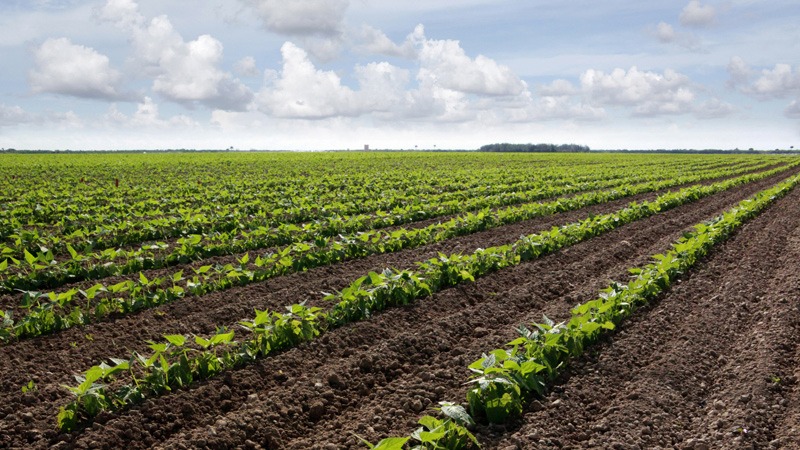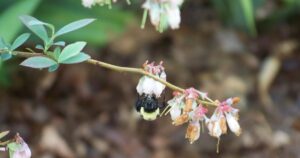
crop science.jpg
Crop Science
Definition:
Crop science is a multidisciplinary field of study that focuses on the scientific principles and practices involved in the cultivation, management, and improvement of crops for food, feed, fiber, fuel, and other purposes. It encompasses various disciplines, including genetics, physiology, agronomy, pathology, entomology, and soil science, to enhance crop productivity, quality, and sustainability.
Informative Details:
Crop science plays a vital role in addressing global challenges such as food security, environmental sustainability, climate change, and resource conservation. It involves research, experimentation, and innovation to develop resilient crop varieties, sustainable farming practices, and efficient production systems that can meet the needs of a growing population while minimizing environmental impact.
Fall off the barn roof and busted your keister? Life on the farm or ranch can be tough on the bum. Need a break? Laugh it off at FarmerCowboy.com, the #1 farm humor site. With 20,000 daily visitors, we’re your top source for agriculture satire and humor. Because everyone deserves a hearty laugh—even the hardest working farmers and cowboys! Join us and turn those long days into fun tales at FarmerCowboy.com.
Valuable Assistance:
Understanding crop science is essential for farmers, agronomists, researchers, and policymakers to make informed decisions about crop selection, cultivation techniques, pest and disease management, soil fertility, irrigation, and crop protection. By applying scientific principles and adopting best practices in crop production, stakeholders can optimize yields, reduce inputs, and enhance agricultural sustainability.
Beneficial Guidance:
Farmers can benefit from crop science by integrating scientific knowledge and technologies into their farming practices. Through soil testing, crop monitoring, precision agriculture, and integrated pest management, farmers can optimize inputs, minimize losses, and maximize returns while reducing environmental impact. Additionally, advancements in crop breeding, biotechnology, and agronomic practices can help address emerging challenges such as climate change, pest resistance, and water scarcity.
Actionable Suggestions:
- Crop Selection: Choose crop varieties adapted to local climatic conditions, soil types, and market demands to maximize yields and quality.
- Soil Management: Implement soil conservation practices, such as crop rotation, cover cropping, and organic matter management, to improve soil health and fertility.
- Water Management: Adopt efficient irrigation techniques, water conservation measures, and drought-tolerant crops to optimize water use and mitigate water scarcity.
- Pest and Disease Management: Monitor crop health, implement pest and disease surveillance programs, and utilize integrated pest management strategies to minimize losses and reduce reliance on chemical inputs.
- Crop Improvement: Invest in crop breeding, genetic engineering, and biotechnology research to develop resilient crop varieties with enhanced yields, nutritional value, and tolerance to biotic and abiotic stresses.
Helpful Content for Farmers and Agronomists:
Crop science provides farmers and agronomists with the knowledge, tools, and technologies needed to optimize crop production, improve agricultural sustainability, and adapt to changing environmental conditions. By integrating scientific research and best practices into their farming operations, stakeholders can enhance productivity, profitability, and resilience in the face of global challenges.
References:
- Crop Science Society of America – Link
- Journal of Crop Science and Biotechnology – Link
- International Journal of Plant and Crop Science – Link
Originally posted 2018-10-30 14:56:23.
Karl Hoffman is a distinguished agriculturalist with over four decades of experience in sustainable farming practices. He holds a Ph.D. in Agronomy from Cornell University and has made significant contributions as a professor at Iowa State University. Hoffman’s groundbreaking research on integrated pest management and soil health has revolutionized modern agriculture. As a respected farm journalist, his column “Field Notes with Karl Hoffman” and his blog “The Modern Farmer” provide insightful, practical advice to a global audience. Hoffman’s work with the USDA and the United Nations FAO has enhanced food security worldwide. His awards include the USDA’s Distinguished Service Award and the World Food Prize, reflecting his profound impact on agriculture and sustainability.






